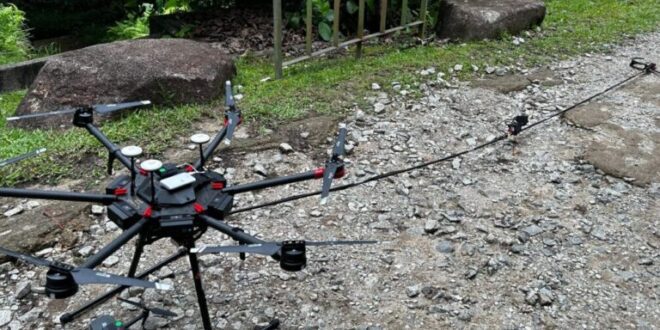The XPRIZE Foundation, based in California, is known for organizing competitions to promote innovation in various sectors, including health and energy. Recently, the foundation announced the six finalists for its rainforest biodiversity competition, known as XPRIZE Rainforest. This competition aims to develop technologies that can map biodiversity in rainforests and offers a prize of $10 million.
To learn more about the competition and its significance, Mongabay staff writer Abhishyant Kidangoor spoke with Peter Houlihan, the executive vice president of biodiversity and conservation at XPRIZE. They discussed the reasons behind launching the competition and how it has evolved into a movement.
Conservation technologies such as drones, remote sensing, and machine learning play a crucial role in assisting conservation scientists and policymakers in making informed decisions about protecting biodiversity. Recognizing this, the XPRIZE Foundation initiated a five-year competition to develop technologies that can automate and accelerate the assessment of rainforest biodiversity.
In a podcast episode, Kidangoor interviews Houlihan about the competition and the six finalists recently announced. Despite the challenges posed by the COVID-19 pandemic, the competition has persisted with the support of sponsor Alana Foundation. According to Houlihan, the conservation implications of the competition couldn’t be put on hold, emphasizing the importance of continuing the work.
Houlihan describes XPRIZE competitions as “long-term conferences” that focus on forming unity around shared goals rather than determining the best technology. In the case of conservation, the goal is to bring together individuals who haven’t previously collaborated. By encouraging innovative collaborations, the competition aims to drive solutions differently. Houlihan expresses his support for all the participants, hoping to see success for each of them.
Monitoring endangered species and cataloging the vast biodiversity of the planet is a challenging task, especially considering that approximately 80% of all species remain unknown to science. The collection of species data is essential for informing policies and establishing protected areas, but historically, it has been a difficult process. However, the advancement of technology and collaboration, facilitated by competitions like XPRIZE Rainforest, have the potential to make data collection more feasible and impactful.
Houlihan believes that if the tools developed through the competition can help individuals worldwide collect the necessary data to inform policies, it would be considered a success. Emphasizing the importance of collaboration, he highlights the potential for these technologies to benefit people globally.
Overall, the XPRIZE Rainforest competition offers a platform for driving innovation and collaboration in the field of conservation. By encouraging the development of technologies that can automate and accelerate biodiversity assessment, the competition aims to contribute to the protection and preservation of rainforests.
 Mind Uncharted Explore. Discover. Learn.
Mind Uncharted Explore. Discover. Learn.



